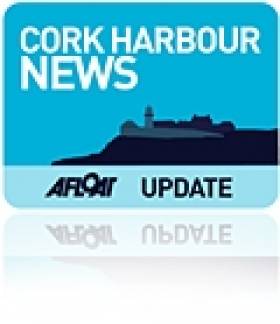Displaying items by tag: Sheila Tyrrell
Sheila Tyrrell to Chair New Sail Training Group
The new umbrella organisation Sail Training Ireland includes a number of key sailing people involved in sail training in Ireland including the chief executive of the Irish Sailing Association Harry Hermon and Seamus McLoughlin the head of operations of Dublin Port Company. The group also includes Kalanne O'Leary, a former member of Coiste an Asgard, the state board that ran Asgard II. The full group, chaired by Sheila Tyrrell, has been named as follows:
Sheila Tyrrell, Chair
Harry Hermon, ISA Chief Executive
Philip Cowman ISA Director, Ex Harbour Master Waterford
Kalanne O'Leary, Irish Representative on Sail Training International
Seamus McLoughlin, Head of Operations, Dublin Port
Sean Flood, Sail Training International Ambassador – Ireland.
Looking for further reading on Tall Ships in Ireland? Click the links below:
Click this link to read all our Tall Ships Stories on one handy page
Previewing Ireland's Tall Ships 2011 Season
Can Ireland Get a New Tall Ship?
New Organisation Announced for Sail Training in Ireland
A sailing initiative aimed at Irish participation in next year's Tall Ships Races in Waterford has been announced by a newly formed national organisation Sail Training Ireland.
Since the sinking of the Asgard II and the decision to wind up Coiste An Asgard, the Irish Sailing Association (ISA) has been facilitating a steering group with the aim of establishing 'Sail Training Ireland'.
The steering group has been working with Sail Training International to establish a sustainable organisation that will work with training providers and host ports to build Ireland's Sail Training Programme in the future.
The Tall Ships Race that visited Belfast last year is due to return to Waterford in 2011 and Dublin in 2012 is clear recognition by the race organisers of Ireland's popularity as a destination, and a credit to the host ports who are able to facilitate such a great occasion.
The working group are preparing for the launch of Sail Training Ireland in a few weeks and are currently putting together a feasibility study and business plan for the organisation that may be presented to the Minister in the New Year.
Sail Training International has awarded a bursary to Sail Training Ireland which will provide funding to support the participation of young people in The Tall Ships Races 2011 and 2012.
"The small group that has been working on this will put together a sensible, practical but ambitious plan to ensure the legacy of Coiste an Asgard...." explains Nigel Rowe, Chairman of Sail Training International, "....it will enable Irish youth to continue to benefit from the sail training experience".
Sheila Tyrrell, Chair of the steering group, who has a long history with sail training and in particular the Asgard remarks "The bursary from Sail Training International is very welcome and endorses the credibility of our plans to re-establish a national sail training programme. The steering group will be in a position to effect the launch of Sail Training Ireland this side of Christmas."
Looking for further reading on Tall Ships in Ireland? Click the links below:
Click this link to read all our Tall Ships Stories on one handy page
Previewing Ireland's Tall Ships 2011 Season
Can Ireland Get a New Tall Ship?
























































